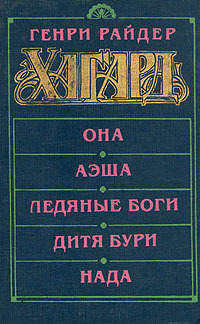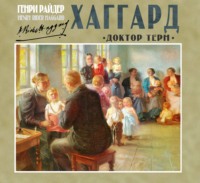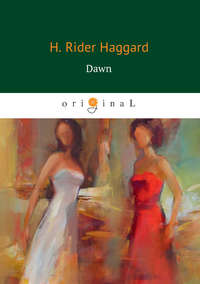
Полная версия
Belshazzar
My vision passed and I awoke, wondering where that city might be and if within it I should find any habitation.
It was a foolish dream, yet I set it down because I think it told me something of the mystery of birth and death. Or rather it set out these mysteries, revealing nothing, for who knows what lies beyond those black walls that are our Alpha and Omega and between which we spell out the alphabet of Life. Also it was not altogether foolish, for even then I knew that the shapes of terror which seemed to wait upon my path were portents of advancing woe – and trembled…
It must have been the dead of night when I awoke thus out of my swoon, for now there was no sound in the camp, save the tramping of the sentries and the howling of distant dogs or jackals smitten of the moon. In the pavilion the scented lamps burned low or had been shaded, so that the place was filled with a soft gloom, in which shadows seemed to move, caused no doubt by the swinging of the lamps in the draught of the night air. Yet one of these shadows, the most palpable of them all, did not move; indeed it seemed to stand over me like a ghost that waits the passing of one whom it has loved. I grew afraid and stirred, thinking to speak, whereon the shadow turned its head so that the light of the lamp fell upon the beautiful face of a woman.
“Who are you?” I asked in a whisper, for I seemed to fear to speak aloud.
A sweet voice answered,
“O Ramose, Pharaoh’s son and envoy, I am your hostess Atyra, once a queen.”
“And what do you here, Queen Atyra?”
“I watch you, my guest, in your swoon.”
“A poor task, Lady, more fitting to a leech or slave.”
“I think not, Ramose, son of the king, as I have been told that you are by your escort and others. There is much to be learned from those who sleep by one who has the gift of reading souls.”
“Is it your gift, Lady?”
“I have been taught it by wise men in Syria, magi the Persians call them, and as I think not quite in vain. At least I have read your soul.”
“Then, Lady, you have read that which is worth nothing, for what is written upon so short a scroll?”
“Much, Count Ramose, for our life is like the chapters of a book, and already at our birth Fate has stamped the titles of those chapters upon its clay, leaving it to Time to write the rest. Your story, I think, will be long, if sad in part. Yet it was not to talk of such things that I have come here alone at night.”
“Why, then, did you come, Lady?”
“First to see how you fared, for your fall was heavy, and secondly, if you were well enough, to hear your message.”
“It is short, Lady. Pharaoh bids me say that he will answer your requests to-morrow, since to-day it is too late.”
“Yet it was not too late for him to send you, Count Ramose, charged with words that mean nothing. I will tell you why he sent you; it was to spy upon me and make report to him.”
Thus she said, resting her chin upon her hand and looking at me with her great dark eyes which shone in the lamplight like to those of a night-bird, but I remained silent.
“You do not answer, O Ramose, because you cannot. Well, your office is easy, for I will tell you all there is to learn. The old king, Abibal, whose wife I was in name, is dead, and dying left a charge upon me – to save his country from the Babylonians, calling down the curse of all the gods upon my head in life and on my soul in death, should I fail by my own fault to fulfil his dying prayer. Therefore I have come to Egypt, although the oracles warned me against this journey, for the case of these Syrians is very hard and desperate, and in Egypt lies their only hope who alone cannot stand against the might of Babylon. Tell me, Son of the king, will Apries help us?”
“I do not know, Lady,” I answered, “but I do know that least of all things does he, or Egypt, desire a war against Babylon. You must plead your own cause with him; I cannot answer your question.”
“How can I plead my cause, Count Ramose? I bring great gifts of gold and silks and spices, but what are these to him who holds the wealth of Egypt? I can promise allegiance and service, but my people are far away and Egypt seeks no war in which they can be used.”
Again I answered that I did not know, then added,
“Yet your nation could have found no better envoy, for Pharaoh loves a beautiful woman.”
“Do you think me beautiful?” she asked softly. “Well, to tell truth, so have others, though as yet such favour as I have, has brought me little joy – ” and she sighed, adding slowly, “Of what use is beauty to her who has found none to love?”
“I know little of such things, Lady. Yet, perhaps for you the search is not finished.”
She looked at me a while before she answered,
“My heart tells me that you are right, O Ramose. The search is not finished.”
Then she rose and taking a cup of wine gave me to drink of it, afterwards drinking a little herself as though to pledge me.
This done, she poured the rest of the wine upon the ground, like to one who makes an offering before some god, bent down so close that her scented breath beat upon my brow, whispered to me to sleep well, and glided away.
I think there must have been some medicine in that wine, for presently all the pain left my head and neck and I fell fast asleep, yet not so fast but that through the long hours I seemed to dream of the loveliness of this Syrian queen, until at length I was awakened by the sunlight shining in my eyes.
A servant who must have been watching me, noted this and went away as though to call some one. Then an old man came, one with a white beard who wore a strange-shaped cap.
“Greeting, Sir,” he said in bad Greek. “As you may guess, I am the court physician. Most unhappily I was absent last night, seeking for certain plants that are said to grow in Egypt, which must be gathered by the light of the moon, since otherwise they lose their virtue; indeed, I returned but an hour ago.”
“Is it so, Physician?” I answered. “Well, I trust that you found your herbs.”
“Yes, young sir, I found them in plenty and gathered them with the appropriate spells. Yet I would I had never learned their name, for I hear that my mistress is very wrath with me because I was not present when you chanced to roll into the tent like a stone thrown from a catapult, and may the gods help him with whom she is wrath! Still I see that you live who, I was told, had a broken neck. Now let me see what harm you have taken, if any.”
Then he called to the eunuch to come within the screens that had been set round me, and strip me naked. When this was done, he examined me with care, setting his ear against my breast and back, and feeling me all over with his hands.
“By Bel, or whatever god you worship,” he said, “you have a fine shape, young lord, one well fitted for war – or love. Nor can I find that there is aught amiss with you, save a bruise upon your shoulder and a lump at the back of your head. No bone is broken, that I will swear. Stand up now and let me treat you with my ointments.”
I stood up, to find myself little the worse save for a dizziness which soon passed away, and was rubbed with his aromatics, and afterwards washed and clothed. Then I was led out of the pavilion to where my men were camped, who rejoiced to see me living and sound, for a rumour had reached them that I was dead. With them I ate and a while later was summoned to the presence of the Queen Atyra.
So once more I entered the pavilion, to find this royal lady seated in a chair made of sycamore wood inlaid with ivory. I bowed to her and she bowed back to me, giving no sign that she had ever seen me before. Indeed she looked at me with her large eyes as though I were a stranger to her, and I looked at her clad in her rich robes over which flowed her black abundant hair, and marvelled at her beauty, for it was great and moved me.
I will not set out all our talk; indeed after these many years much of it is forgotten, though that which we held at midnight I remember well, when we were but man and woman together, and not as now, an envoy and a foreign queen discussing formal matters of state. The sum of it was that she grieved to hear of my mischance, and prayed me to accept a stallion of the Syrian breed in place of my own which had been lamed through the carelessness of her servants, but rejoiced to know from her physician that beyond a blow which stunned me for a while, I had taken little harm.
I thanked her and delivered Pharaoh’s message, at which she smiled and said that it told her nothing, except that she must wait where she was, until it pleased him to send another. Meanwhile she hoped that I would be her guest as the physician told her I was not yet fit to ride.
Now as this plan pleased me well, for to tell truth I longed for more of the company of that most lovely woman, I summoned the scribe who was amongst those who rode with me, and wrote a letter to Pharaoh, telling him of what had chanced, which letter I despatched in charge of two of my guard. They departed, and at evening returned again, bringing an answer signed by Pharaoh’s private scribe, which bade me stay till I was able to travel, and then accompany the Queen Atyra to the court.
So there I remained that night, being given a tent to sleep in near to the pavilion. In the evening also I was bidden to eat with the queen and certain of her councillors, when, as she alone knew the Grecian tongue, the talk lay between her and me. Indeed as soon as the meal was finished she made some sign whereat these men rose and went away, leaving us alone.
The night was very hot, so hot that presently she said,
“Come, my young guest, if it pleases you, let us leave this tented oven, and walk a while beneath the moon, breathing the desert air. No need to call your guard, for here you are as safe as though you sat in Pharaoh’s palace.”
I answered that it pleased me well, and calling for two of her women to accompany us, we set forth, the queen wearing a hooded, silken cloak that the women brought to her, which covered her white shape and glittering jewels like a veil. I too was wrapped in a cloak, since I wore no armour, and thus, we thought, the pair of us passed unnoted through the camp.
At a distance on the crest of a sandy hill, stood the ruin of some old temple overlooking the cultivated land and the broad waters of the Nile. Thither we wended followed by the two women; at least at first we were followed by them, but later when I looked I could not see them any more. Still of this I said nothing who was well content to be alone with this gracious and beautiful lady. We came to the temple and entered its hoary courts whence a jackal fled away, as did a night-bird perched upon a cornice, telling me that here there was no man. At the far end of the court there remained a statue of Hathor, one of a pair, for the other had fallen. That it was Hathor might easily be known for she wore the vulture cap and above it horns between which rested the disc of the moon. Near to the feet of this statue in the shadow of a wall, Atyra sat herself down upon a broken block of alabaster, motioning to me to place myself at her side.
“What goddess is this,” she asked, “who carries the horns of a beast upon the brow of a fair woman?”
“Hathor, goddess of Love,” I answered, “whom some call Mistress of the gods.”
“Is it so? Well, by this title or by that she is known in every land, and well is she named Mistress of the gods and men. Strange that amidst all this ruin she alone should have stood through the long centuries, an emblem of love that does not die. How beautiful is the night! See the great moon riding in yonder cloudless sky. Look at her rays glittering on the river’s face and hark to the breeze whispering among the palms beneath. Truly such a night should be dear to Hathor, so dear that – ”
Here she broke off her dreamy talk, then said suddenly,
“Tell me of yourself, Prince Ramose.”
“Do not give me that title,” I exclaimed. “If it were heard it might bring trouble on me who am but a Count of Egypt by Pharaoh’s grace!”
“Yet it is yours, Ramose,” she answered, “and in this place there is none to hear save Hathor and the moon. Now speak.”
So I told her my short tale, to which she listened as though it had been that of the deeds of a king; then said,
“But you have left out the half of it all. You have left out Hathor.”
“I do not understand,” I answered, looking down to hide my blushes.
“I mean that you have left out love. Tell me of those whom you have loved. Do you not know that it is of love that all women wish most to hear?”
“I cannot, Lady, for I have – never loved.”
“If that be true, how deep a cup of love is left for you to drink, whose lips have not yet sipped its wine, Ramose. So here in the shadow of Hathor sit a pair of us, for to give you truth for truth, I tell you that though I am your elder, I too have never loved.”
“Yet you are a widow,” I said astonished.
“Aye, the widow of an aged man who married me because of my birth, my wit, my wealth, and the great friends I brought him, and whom I married to serve my people that were threatened, as his are to-day, by the giant might of Babylon. Abibal was to me a father and no more, if a beloved father whose commands I will execute to the death, which commands bring me upon a long and perilous journey to seek help from mighty Pharaoh who desires to give me none.”
Now I glanced at her sideways, and said,
“You are very beauteous, Lady. You have the eyes of a dove, the step of a deer, the wisdom of a man and the grace of a palm. Were there then none who pleased your eyes about your court in Syria?”
“While my lord lived I was blind, as became a loyal wife,” she answered.
“And now that he is dead, Lady?”
“Oh! now I cannot say. No more do I seek a husband who am a queen and would remain free, the slave of no one, for what slavery is there like to that of marriage? Yet it is true that I desire love, if I may choose that love. Come; let us be going, for yonder Egyptian Hathor of yours casts her spell over me and brings thoughts that for long I have forbidden in my heart. I think that this is an evil-omened place; its goddess tells of love, but its hoar ruins tell of death. Doubtless did we but know it, here we sit above the shrouded dead who, staring at us from their sepulchres, mock our beating hearts which soon will be as still as theirs. Come; let us be going, who yet are young and free from the webs of Hathor and of death. Death, I defy thee while I may. Hathor, I make a mock of thee and thy calm, compelling gaze. Dost thou not also make a mock of Hathor, Ramose?” and turning, she looked at me with her great eyes that seemed to glow in the shadows like to those of an owl.
“I do not know,” I answered faintly, for those eyes drew the strength out of me. “Yet it is dangerous to mock at any goddess, and most of all at Hathor. Still, let us go, I think it very wise that we should go; the scent of your hair overwhelms me who have been ill. My brain rocks like a boat upon the sea. Hathor has me by the hand.”
“Yes, I think that Hathor has us both by the heart,” she answered in her low rich voice, a voice of honey.
Then our lips met, for there in her temple we had drunk of Hathor’s cup.
Chapter 3
The Counsel of Belus
We rose; her face was like the dawn, her eyes were dewy, but I trembled like a leaf, I whose heart for the first time love had gripped with cruel hands.
I thought I saw a shadow flit across a pool of moonlight that lay within the temple’s broken pylon, the shadow of a man.
“What frightens you?” she asked.
I told her in a whisper.
“Perchance it was a spirit of which this place must be full, for such, they say, look like shadows. Or perchance it was thrown from the broad wings of some fowl of the night,” she answered lightly. “At least if it be otherwise, that watcher was too far away to have seen us here, seated side by side in gloom. Certainly he could not have heard our words. Yet, Ramose, Hathor’s gift to me, I would warn you. Among those who sat with us at the board to-night, did you take note of one, a bearded man of middle age, hook-nosed, with flashing eyes like to those of a hawk?”
“Yes, Lady Atyra, and I thought that he looked askance at me.”
“It may be so. Listen. That man was a councillor of Abibal’s, a priest of his god also, and as such one of great power in the land. Always he has pursued me with his love, and now he would wed me. But I hate him, as hitherto I have hated all men, and will have none of him. Moreover,” here her voice grew hard and cold, “when I am strong enough I will be rid of him, but that is not yet. If I can win Pharaoh’s friendship and bring it to pass that he names me to succeed to the throne of Abibal, as his subject queen, then and not till then shall I be strong enough, for this Ninari has a large following and the half of my escort are sworn to him. Meanwhile, have no fear and be sure that in this, our first kiss, I pledged my heart to you and to no other man.”
“I thank you, O most Beautiful,” I answered. “Yet tell me, Lady, how can this matter end? You have been a queen and will be one again, while I am but Pharaoh’s base-born son, one of many, though I think that he loves me best of all of them. Also I am young and unproved. What then can there be between us?”
“Everything before all is done, I think, Ramose, if you will but trust to me who am wise and strong in my fashion, and being alas! older than you are, have seen and learned more. Already I have a plan. I will persuade Pharaoh to send you with me to Syria, there to be his eyes and envoy, and once back in my own country I will be rid of this Ninari and will take you as my husband, saying that such is Pharaoh’s will.”
“May that day come soon!” I muttered, who already was as full of love of this royal woman, as a drunkard is with wine.
Meanwhile we had left the temple, and were walking side by side but not too near, down the slope of sand towards the camp. As we went, from a clump of stunted sycamores appeared the two waiting-ladies whom Atyra chided because they had not followed her more closely.
They answered that they had seen a man who looked like a thief of the desert, watching them and being afraid, had taken refuge among the trees till he went away down towards the river. Then they had come out but could not find us, and therefore returned to the trees and waited, not knowing what else to do.
“You should have run back to the camp and fetched a guard,” she answered angrily. “For is it meet that the Lady Atyra should wander unaccompanied in the night?”
Then she dismissed them and they fell behind us, but although I was young and knew little of women’s tricks, the only thing I believed about that tale, was that they had seen a man, perchance the same whose shadow flitted across the moonlight within the broken pylon.
When we reached the camp and had passed the sentries in front of the pavilion, we met the councillor and priest Ninari, who seemed to be waiting there, doubtless for our return. He bowed low and spoke to the queen in a Syrian tongue which I did not understand, and in that tongue she answered him, somewhat sharply, as I thought. Again he bowed low, almost to the ground indeed, but all the while I felt that his fierce eyes were fixed upon me. Then with some courteous words to myself, thanking me for my company, she passed into the pavilion.
I, too, turned to go to my own quarters where my escort awaited me, when this Ninari stepped in front of me and said in bad and guttural Greek,
“Young lord from the Pharaoh’s court, your pardon, but I would have you know that whatever may be the fashions of Egypt, it is not our custom for strangers to walk alone with a great lady at night, especially if she chances to be our queen.”
Now there was something in the man’s voice and manner which stirred my blood, and I answered, holding my head high,
“Sir, I am a guest here and Pharaoh’s envoy, and I go where my hostess asks me to go, whatever may be your Syrian customs.”
“You are strangely favoured,” he said sneering. “Your horse which you cannot manage, hurls you like a sack stuffed with barley into the presence of our mistress. She doctors your bruised poll, and now takes you out walking in the moonlight. Well, well, I should remember that you are but a forward, cross-bred Egyptian boy, well-looking enough as bastards of your kind often are in their youth, just such a one as it pleases grown women to play with for an hour and then cast aside.”
I listened to this string of insults welling like venom from the black heart of the jealous Syrian. At first they amazed me to whom no such words had ever been used before. Then as the meaning of his coarse taunts, hissed out in broken Greek, came home to me, being no coward I grew enraged.
“Dog!” I said, “beast of a Syrian, do you dare to talk thus to Pharaoh’s envoy, a Count of Egypt?” and lifting my arm I, who was a trained boxer, doubled my fist and smote him in the face with all my strength, so that he went headlong to the ground.
At the sound of my raised voice men ran together from here and there – some of them those of my own escort whose tents were near at hand, some of them Syrians – and stood staring as this Ninari went backward to the earth. In a moment he was up again, blood pouring from his hooked nose, and came at me, a curved and naked blade in his hand, which I suppose he had drawn as he rose. Seeing this, I too drew my short Grecian sword and faced him, though there was this difference between us, that whereas I had no armour, being clothed only in a festal dress of linen, he wore a coat of Syrian mail. My men, noting this, would have thrown themselves between us, but I shouted to them to stand aside. The Syrians would have done likewise, but at some command that I did not hear, they also fell back. Thus we were left facing each other in the full moonlight which was almost as clear as that of day.
Ninari smote at me with his broad, curved blade. I bent almost to my knee and the blow went over my head. Rising, I thrust back. My sword-point struck him full beneath the breast but could not pierce his good armour, though it caused him to reel and stumble. Again he came at me, smiting lower to catch me on the body which he knew was unprotected, and this time I must leap far backwards, so that the point of his blade did no more than cut through my linen garment and just scratch the skin beneath.
Yet that scratch stung me, more perhaps than a deeper wound would have done, and made me mad. Uttering some old Greek war-cry, as I think one my mother had taught me as that of her father’s House, I flew at the man and smote him full upon his helm, shearing off one side of it and causing him to stagger. Before he could recover himself I smote again and though the steel glanced from the edge of his severed helm, yet passing downwards, it cut off his right ear and sank deep into his neck and shoulder.
He fell and lay there, as it was thought, dead. The Syrians began to murmur for they did not love to see a noted warrior of their race thus defeated by an unarmoured youth. My men, fearing trouble, ringed me round, muttering such words as:
“Well done, young Ramose!” “You have lopped that cur’s ear, Count, although he wore a collar when you had none.” “Now if any other Syrian would like a turn – ” and so forth, for this escort of mine, some of them Greek and some Egyptian, were all picked fighters of Pharaoh’s guard, and rejoiced that their boy officer should have won in so uneven a fray.
The business grew dangerous; the friends of Ninari drew their weapons and waved spears. My escort made a ring about me in the Grecian fashion, their swords stretched out in front of them. Then I heard a woman’s voice cry,
“Have done! Fools, would you bring Pharaoh’s wrath upon us and cause our country’s prayer to him to be refused? If this young Egyptian lord has done ill, let Pharaoh judge him.”
“Queen,” I broke in, panting between my words, “I have done no ill. This follower of yours,” and I pointed to Ninari who lay upon the sand groaning, “for no cause bespattered me with the vile mud of insults, till at length unable to bear more, I felled him with my hand. He rose and although I wear no mail, sprang at me to slay me with his sword. So I must defend myself as best I might. There are many here who can bear witness that I speak the truth.”
“It is needless, Count Ramose,” she answered in a clear voice, “for know that I heard and saw something of this business and hold that you were scarcely to blame, save that you should have taken no heed of mad or wine-bred talk. Yet, lest harm should come to you and I and my people be put to shame, I pray you leave this camp now at once and return to Sais whither I will follow you tomorrow to seek audience of Pharaoh and ask his pardon. Let the horses of Pharaoh’s envoy be made ready.”









